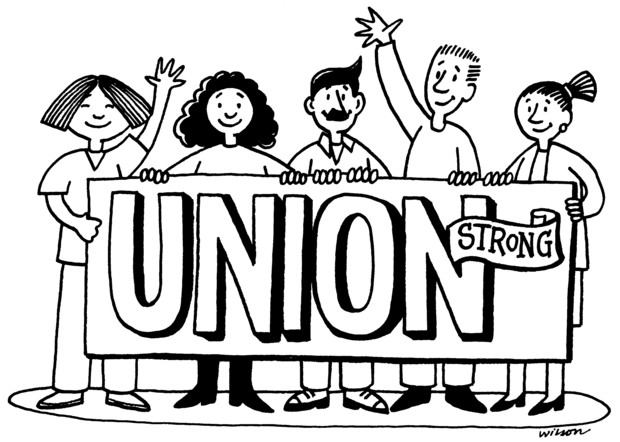Late one night last June, a stray firework found its way inside the locked alley next to Glo’s, the beloved Capitol Hill restaurant I’ve worked at for the last seven years. It had been hot and dry that week, and the spare chairs and miscellaneous junk we stored there quickly caught fire, spreading to the side of the building, melting our utility panel, and filling the restaurant with smoke. The space was unusable, and my coworkers and I were out of a job. After a couple weeks of uncertainty, we found out we’d still be paid our average wages through fire insurance while we awaited the opening of our new location. We just had to work a couple days a week at a pop-up to keep the insurance payments flowing. Not a bad deal!
But it dragged on. An expected opening date in October became December. Then January, February, March—we finally opened in our new location on May 15. That whole time, we were locked into our pre-inflation wages. Some of my coworkers were paying upwards of 50 percent of their wages in rent every month. Communication from our bosses about the progress of the new space was spotty. We were nervous.

We could have gotten other jobs. But we genuinely love each other and our workplace, and were urged not to by our bosses. We had gotten through the pandemic together—a rough time for all restaurant workers, us not least of all. We had weathered abuse from customers irate about our masking and vaccination requirements, grueling and unsustainable pacing meted out by app-based online ordering services, and stagnant tips. For over two years, we had provided around 1,000 free meals a month to those in need, all while continuing to do the rest of our job to keep the restaurant afloat. We had our windows smashed, witnessed a stabbing in front of our workplace, and administered Narcan to struggling community members overdosing on our bench outside. We deserved a little break.
In October, my coworkers and I got together at the request of our bosses to discuss how we’d like to divvy up tips once we got into the new space. That discussion quickly revealed dramatic and seemingly arbitrary pay disparities among the staff. Servers were being paid minimum wage, but still invariably took home more money at the end of the day than even the highest-paid cook (nearly $1,000 more a month). One cook who had worked at Glo’s for nearly a decade had gone years without a raise. But the issue wasn’t that servers made more money than cooks. It was that none of us were making enough, and that there was no pay transparency.
Complaints about economics quickly gave way to other quality-of-life issues. Scheduling is a consistent problem; it’s inconsistent and we often don’t know our schedule until a day or two before the start of the work week. Communication between management and staff has also been a longtime issue; it’s unprofessional, passive aggressive, and unclear. All of these issues—along with sexual harassment, denial of breaks, and prevalence of substance abuse—are endemic to the restaurant industry. I floated the idea of a union, and it quickly gained traction.
Collective Action Works!
My coworkers and I met every Monday for several months, talking about what we loved about our workplace and what we desperately wanted to change. We griped about what the bosses had said or not said, done or not done that week. We commiserated about how drawn out the process of moving into the new restaurant had become, and how little information we were getting about it. We were joined by Ben, an organizer for a small, democratic, and militant union called Restaurant Workers United (RWU)–he’s been a great resource for us.
In January, we sent a small delegation to our bosses requesting financial aid for a handful of our coworkers who were acutely struggling as the transition wore on. We didn’t get everything we asked for, but we got most of it (though not without a lecture from ownership on personal responsibility and admonishment for not seeking other sources of income, despite their months-earlier plea for us to not do so). We showed each other that collective action works. We had much-needed money in our pockets we otherwise wouldn’t.
Our weekly organizing meetings were regularly attended by 8-10 out of 12 workers. We had a strong majority, but—given the strange limbo we were in, waiting for a physical restaurant to work in—we had to wait for the right moment to go public with our union effort. That moment came in mid-April, when we were sure we’d be working in the new space in a matter of weeks. We drafted a letter, signed by 11 out of 12 workers, asking our bosses for voluntary recognition of our union with RWU. A day and a half later, we had a response: ownership would voluntarily recognize our union.
In the month since our victory, we’ve been busier than ever. We’ve opened a new, enormous restaurant; we’re working full time again; and our staff has more than doubled, so we’re working hard to organize the new hires (several have already signed union cards).
Demanding Better Working Conditions
We’re looking forward to sitting down at the negotiating table soon to hammer out our first contract, hoping to set a strong standard for an industry that has long left workers languishing in this country. We’re seeking consistent scheduling, fair and coherent disciplinary practices (such as just-cause firings and a clear grievance process), wage transparency and tipping equity, and more.
We hope to inspire other restaurant workers in Seattle and beyond. If service industry workers organize together across shops, we can do so much more than win better individual workplaces. We can win a better quality of life for all workers in the industry by organizing campaigns to end the sub-minimum wage for tipped workers, set better standards for healthcare and paid time off, and more.
Reach Out for Support
If you or anyone you know works in a restaurant and wants to turn the industry on its head, send them my way. Talk with your coworkers. Find out what they need, what injustices they’re enduring, and help each other turn away from agonizing and toward organizing. Join our union. We’re just getting started.
